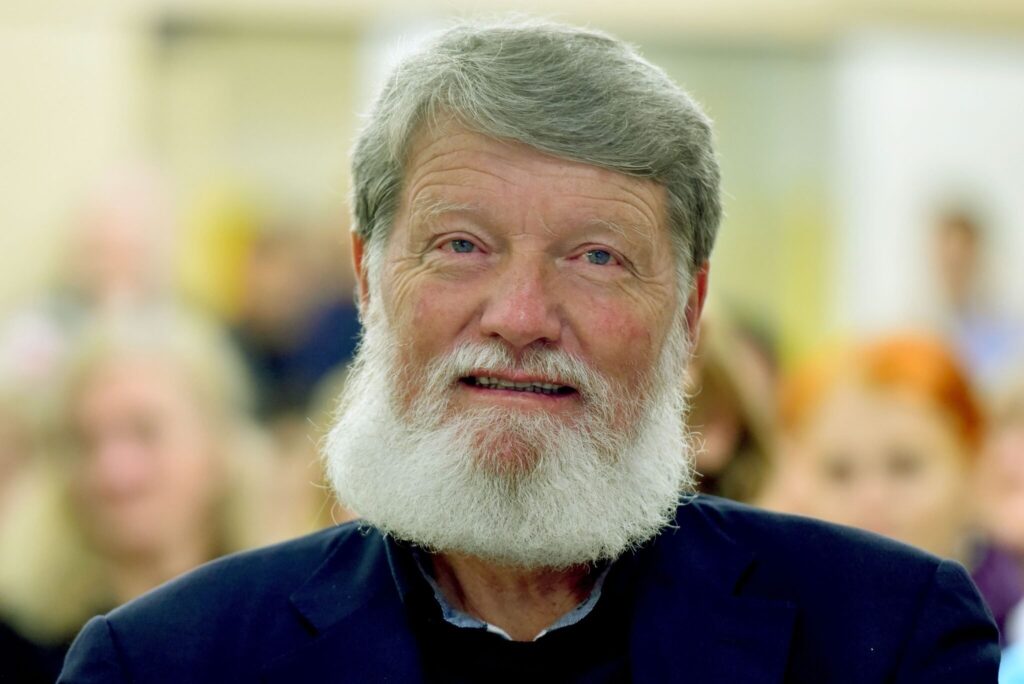Prime Minister Janez Janša has nominated missionary Peter Opeka and his humanitarian organisation Akamasoa, which operates in the suburb of Antananarivo in Madagascar, for this year’s Nobel Peace Prize.
In 2019, the humanitarian association Akamasoa (the name translates to “Good friend”) celebrated its thirtieth anniversary. In these thirty years, Peter Opeka and his association have fought many battles against poverty, giving people on the margins of society hope, and providing them with chances and opportunities to regain their dignity.
Peter Opeka has dedicated his entire life to helping people who live in terrible living conditions in the city of Antananarivo. From the very beginning, Peter Opeka, who has been helping the poorest for almost 50 years, wanted to help the poor, the homeless and all those on the margins of society by enabling them to live independently, by enabling them to work and be financially independent, as well as offering them education.
The tireless efforts of Peter Opeka and those who work with him have borne incredible fruits. The Akamasoa association includes more than 18 villages with all the necessary infrastructures. The people and families who used to be homeless, now live in more than 4000 brick houses. The community provides comprehensive education, starting with kindergarten, then primary, vocational and secondary schools – and up to the recently established Akamasoa University. They also have three libraries. Around 13 thousand children and adolescents are currently part of the education process and are included in the school system full-time. Young people can be educated for various professions and forms of work. Akamasoa also has six clinics, three hospitals and four maternity hospitals. There are also 18 different sports fields available to the residents.
So far, they have helped more than half a million of the poorest people in Madagascar
Thanks to Peter Opeka’s efforts and the efforts of the dedicated people who work with him in Madagascar, Akamasoa has so far helped more than half a million of the poorest people in Madagascar. In addition, the Akamasoa association also distributes approximately five million meals per year.
The support provided by Akamasoa is comprehensive, as they do not only provide living conditions for a dignified life, but also help the poor find suitable work, enable children who used to live in landfills to attend schools in Akamasoa, and offer housing to families, in the well-kept housing estates in Akamasoa, where they can also benefit from local healthcare, parks and sports fields.
All of the work in Akamasoa is done by approximately 500 locals. The aforementioned institutions and projects, implemented by Akamasoa, also provide work for more than 4000 people – in quarries, on small farms, in various workshops and shops.
In addition to Akamasoa, Peter Opeka also built a number of new educational institutions in Madagascar, which are now being run by state institutions.
Peter Opeka also teaches young people of Madagascar to respect and care for nature. He is extremely committed to the fight for reforestation, and the protection of forests in Madagascar, since as much as 79 percent of the forests there have already been destroyed. He plants around 50 thousand seedlings each year, with the help of young people living in Akamasoa.
Peter Opeka’s humanitarian efforts embody the goals of the United Nations
Despite the fact that Peter Opeka’s humanitarian activity is only being carried out in Madagascar, it has also attracted the attention of the foreign public. Akamasoa has friends, donors and supporters in many countries around the world. Akamasoa also serves as an inspiration to help us learn how to share and help those most vulnerable.
As the Prime Minister Janez Janša said in his nomination, the approach of Peter Opeka and his Akamasoa association has contributed to the development of our society and humanitarianism, and Peter Opeka’s actions embody the goals of the United Nations. The humanitarian efforts of Peter Opeka and those who work with him in Madagascar have thus become a global peace project in the fight against poverty, marginalisation and injustice, with the intention of enabling poor people around the world to live a life, worthy of human beings.
At the end of his nomination, the Prime Minister Janez Janša also highlighted the words of the former President of Madagascar, Hery Rajaonarimampianina, who said the following about Peter Opeka in 2014: “Father Peter is a living beacon of hope and faith for overcoming poverty. I would like to invite all citizens from around the world to pay tribute to this remarkable person, who has been invested in the fight against poverty and exclusion for every day of his life and has created a new society that brings hope and happiness to the poor.”


